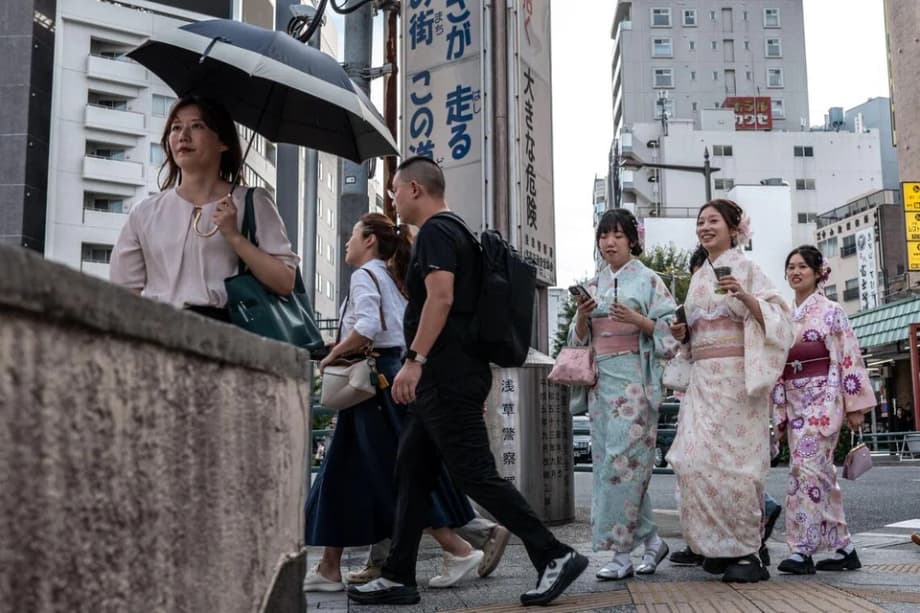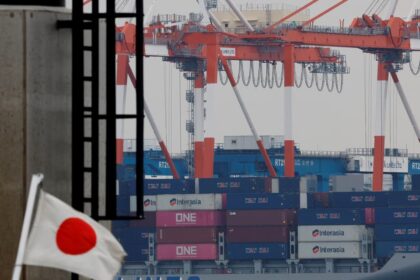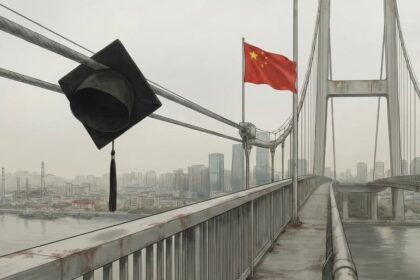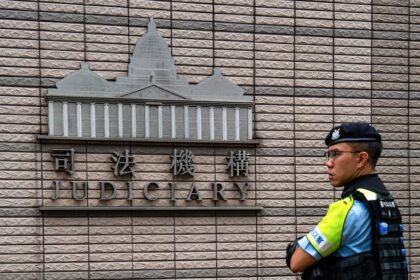A sharp warning with economic stakes
China’s announcement urging its citizens to avoid travel to Japan has sent a chill through Japan’s retail and tourism sectors. The advisory followed public remarks by Prime Minister Sanae Takaichi that a Chinese attack on Taiwan could create a survival threatening situation for Japan. Such a scenario would allow Tokyo to exercise its right to collective self defense under Japan’s security legislation. Industry leaders fear the warning could stall a fragile rebound in visitors from mainland China that began after Covid 19 restrictions eased and borders reopened.
- A sharp warning with economic stakes
- What triggered Beijing’s advisory
- How vital are Chinese visitors to Japan’s economy
- Retailers, hotels and airlines brace for turbulence
- Will the advisory halt travel or prompt a shift
- Government responses and the safety picture
- The regional backdrop, Taiwan and Japan’s security posture
- What businesses can do next
- The Bottom Line
Major department stores, travel agencies, hotels, and airlines have all signaled caution. They have seen Chinese visitors return in recent quarters, though flows remain uneven across regions and travel segments. Many operators say they will track the situation day by day, balancing staffing, inventory, and pricing while watching how both governments handle the dispute. Some retailers report a steady rise in repeat visitors from across Asia and a shift toward independent travel, trends that could cushion a drop in group tours if the advisory dampens demand.
China’s Foreign Ministry framed the warning in security terms and said politics had eroded the climate for travel. The ministry and the Chinese Embassy and Consulates in Japan urged citizens to hold off on travel plans in the near future. The message landed at a sensitive time for Japan’s visitor economy, which depends heavily on Chinese travelers for both footfall and spending.
In explaining the decision, China’s Foreign Ministry said recent remarks by Japanese leaders had harmed the atmosphere for people to people exchanges. The ministry issued a direct caution to travelers. As the ministry put it:
“We solemnly remind Chinese citizens to avoid traveling to Japan in the near future.”
What triggered Beijing’s advisory
The immediate spark was a set of comments by Prime Minister Sanae Takaichi about a Taiwan contingency. She argued that a Chinese use of force against Taiwan could create a survival threatening situation for Japan, a legal threshold under the 2015 security laws. Those laws allow Japan to use collective self defense in limited cases, for example when a partner like the United States is attacked and Japan’s survival could be at risk. The remarks prompted a swift diplomatic protest from Beijing, including the summoning of Japan’s ambassador in China.
Beijing’s reaction drew a response in Tokyo. Japanese officials stressed the need for clear communication and stability, while pushing back against the notion that Japan had created an unsafe environment. Japan’s chief cabinet secretary, Minoru Kihara, said Tokyo had conveyed its position to Beijing and urged restraint. After outlining Japan’s view, he added a direct request to China:
“We have strongly asked Beijing to take appropriate actions.”
Behind the exchange is a long running argument about Taiwan’s security and Japan’s role in the region. Japan’s leaders have spoken more openly in recent years about how a Taiwan crisis could affect Japan’s sea lanes, its southwestern islands, and the security of the broader Indo Pacific. Chinese officials see such statements as interference in internal affairs and a shift away from Japan’s traditional caution on sensitive cross strait issues.
How vital are Chinese visitors to Japan’s economy
Before the pandemic, China was the single largest source of visitors to Japan and a key driver of sales for department stores, luxury boutiques, drugstores, electronics retailers, and regional attractions. In 2019, Japan welcomed close to 32 million international visitors, and nearly 10 million were from mainland China. That translated to about one in three foreign arrivals. Chinese travelers also ranked among the biggest spenders, especially on shopping and high end dining.
After pandemic restrictions lifted, the recovery from China lagged behind rebounds from South Korea, Taiwan, Hong Kong, Southeast Asia, and North America. Even so, the flow from mainland China started to build through 2024 and 2025, aided by more flights and easier planning for independent travelers. Industry trackers reported millions of trips by mainland Chinese visitors in the first nine months of this year, up sharply from the year before as confidence improved and the weak yen made Japan feel more affordable.
Spending patterns have evolved as well. Retail executives describe fewer large tour groups and more individual travelers who use online tools to plan shopping routes and seek out specific products, from cosmetics and health goods to high tech appliances. Repeat visits have risen, a sign that many travelers are comfortable navigating major cities and regional destinations on their own.
That is why the new advisory matters. A drop in first time visitors and tour groups would hit department stores and hotels that rely on predictable volumes and group reservations. Independent travelers may still come, according to several industry voices, but caution about family trips and corporate travel could slow bookings while the dispute remains unresolved.
Retailers, hotels and airlines brace for turbulence
Department store operators say they expect some impact if Chinese travelers delay or cancel plans. They are watching inventory decisions on popular items, adjusting staffing for concierge services, and keeping close contact with travel partners to gauge the next few weeks. Retailers also note an uptick in visitors from elsewhere in Asia, which can soften the blow, but Chinese shoppers still account for a large share of duty free sales and tax free purchases in flagship locations.
Hotels describe a mixed picture. Operators in Tokyo, Osaka, and Kyoto have diversified their base of guests with stronger bookings from Southeast Asia, Europe, and North America, and domestic tourism remains healthy. That gives the sector some insulation. High occupancy over most weekends and during festival periods may hold, although weekdays could soften if business travel from China dips or if group tours are paused.
Airlines are under pressure to recalibrate. Chinese carriers, including Air China, China Southern, and China Eastern, announced they would allow refunds or changes at no charge for tickets to Japan issued before the advisory, covering travel through the end of the year. That step typically signals a near term pullback in capacity or yields on affected routes. Japanese carriers will weigh whether to adjust schedules, swap aircraft types, or retime services to match lower demand while preserving key connections.
Travel agencies confirm that inquiries remain steady from markets outside mainland China. For Chinese customers, some agencies have suspended group tours to Japan, while independent travelers are taking a wait and see approach. The picture can shift quickly if officials tone down rhetoric or if airlines restore confidence with flexible policies and stable schedules.
Will the advisory halt travel or prompt a shift
China’s move is an advisory, not an outright ban. That distinction matters in practice. Many independent travelers with fixed plans, frequent travel experience, or personal ties to Japan may still go. Business travelers with urgent needs could also proceed, especially if companies judge the risk as manageable. Group tours, student trips, and first time travelers are more sensitive to government messages, and those segments may see the sharpest short term decline.
Retail managers in Japan say they have seen a steady rise in independent travel among Chinese customers. That trend points to some resilience. The convenience of shopping in Japan, tax free processes, and a deep inventory of trusted brands continue to appeal. A portion of travelers may shift travel dates rather than cancel outright. Others could rebook to alternative destinations such as South Korea or Southeast Asia if uncertainty persists.
Traveler forums show a mix of reactions, from intense frustration over disrupted plans to casual optimism that the situation will settle. People weighing trips are watching airline policies, exchange rates, and school or work schedules. Flexible hotel rates, simpler change fees, and transparent cancellation terms can help travelers feel comfortable keeping Japan on the calendar.
Government responses and the safety picture
Tokyo has protested Beijing’s decision and emphasized that Japan remains a safe destination. Officials highlight that violent crime rates are low by global standards and that police and emergency services are responsive. They also argue that political disagreements should not spill into intimidation or targeted acts against foreign nationals inside Japan.
For context, the United States advises its citizens to exercise normal precautions when visiting Japan, a relatively low risk posture in that advisory system. The Chinese advisory cites a deteriorating environment and refers to incidents this year that raise concern for Chinese citizens. It also asks those already in Japan to monitor the local security situation and take common sense steps to protect themselves.
Public security in Japan does face real stressors. Large demonstrations, if any occur, can slow transit and disrupt popular areas. Travelers sometimes encounter scams and bar touting in nightlife districts. Natural hazards such as typhoons, earthquakes, and heavy snow are core risks that all visitors should plan for. Those issues are long familiar to local authorities and are not unique to Chinese travelers.
The regional backdrop, Taiwan and Japan’s security posture
Geography drives much of the concern. Japan’s Nansei island chain stretches toward Taiwan, and Japan relies on sea routes that pass near the island for energy and trade. In a crisis, missile launches, military exercises, and naval deployments near those routes could directly affect Japan’s security and its economy. Chinese missile tests in 2022 landed in waters near Japan’s exclusive economic zone, a reminder that the consequences of tension can reach Japan’s doorstep.
Japan’s alliance with the United States shapes how Tokyo thinks about deterrence and response. Under the 2015 security laws, Japan can assist an ally if an attack threatens Japan’s survival and if force is the only suitable and proportional option. That framework is politically sensitive at home, given Japan’s pacifist constitution and long history of limiting military activity. Leaders have moved cautiously, and language around a Taiwan contingency has become more explicit in recent years.
Beijing sees references to intervention as a direct challenge to its position that Taiwan is part of China. Chinese officials argue that Japanese rhetoric revives militarism and undermines regional stability. That clash in narratives explains why a political statement about Taiwan can cascade into travel warnings, airline policy changes, and anxiety in shopping districts thousands of kilometers away from any military line of contact.
What businesses can do next
Japanese retailers and hospitality providers have a playbook from previous shocks. Diversify source markets, deepen ties with repeat visitors, and invest in services that appeal to a wider mix of travelers. That can mean multilingual staff, payment options familiar to visitors from Southeast Asia and Europe, and marketing that spotlights off peak seasons and lesser known regions. A weaker yen reduces prices in foreign currency terms, which can help draw non Chinese visitors while uncertainty lingers.
Airlines will look for agility. Capacity can be redeployed to routes with stronger demand. Joint promotions with tourism boards can target travelers who are less sensitive to political headlines. Flexible change policies, fare sales, and schedule reliability all support traveler confidence. Hotels can emphasize value, with packages that include transit passes, attraction tickets, and dining credits that appeal to international guests and domestic travelers alike.
For companies that rely on Chinese travelers, maintaining engagement matters. Digital channels used by Chinese consumers, cross border e commerce, and partnerships with payment platforms can keep relationships alive even if trips are delayed. When demand returns, retailers with strong brand recognition and good word of mouth will recover faster.
The Bottom Line
- China urged citizens to avoid travel to Japan after Taiwan related remarks by Prime Minister Sanae Takaichi.
- Japan’s retail and tourism sectors expect near term pressure, with department stores, hotels, and airlines preparing for cancellations and softer demand.
- Chinese carriers offered refunds or free changes for Japan flights issued before the advisory, signaling a pullback in traffic.
- Before Covid 19, mainland Chinese travelers were roughly one third of Japan’s foreign arrivals and among the top spenders.
- Independent travel from China has grown, which could cushion the impact if group tours fall.
- Tokyo protested the advisory and says Japan remains safe, while Beijing cites a deteriorating environment for its citizens.
- The dispute reflects deeper tensions over Taiwan and Japan’s security laws on collective self defense.
- Businesses are diversifying markets and using flexible policies to sustain bookings while monitoring diplomatic signals.












